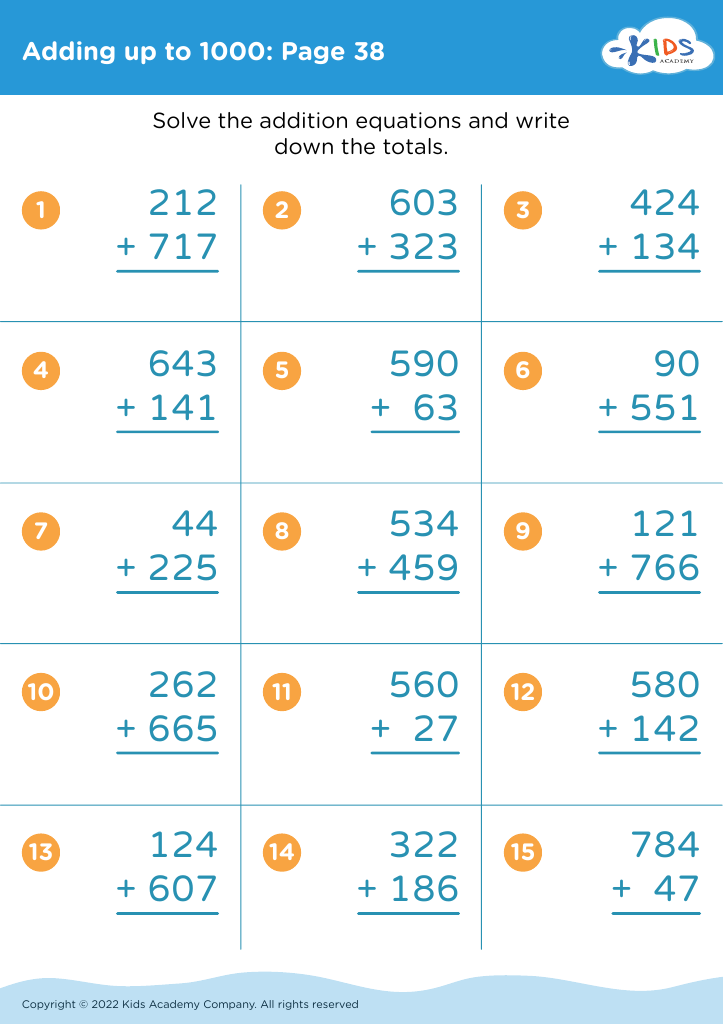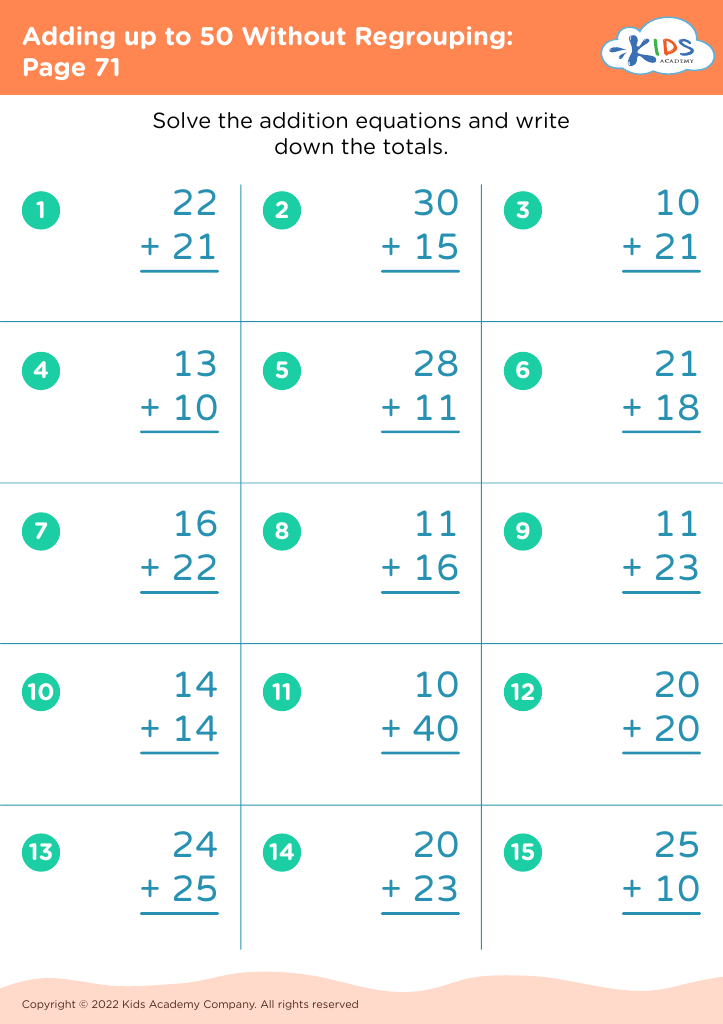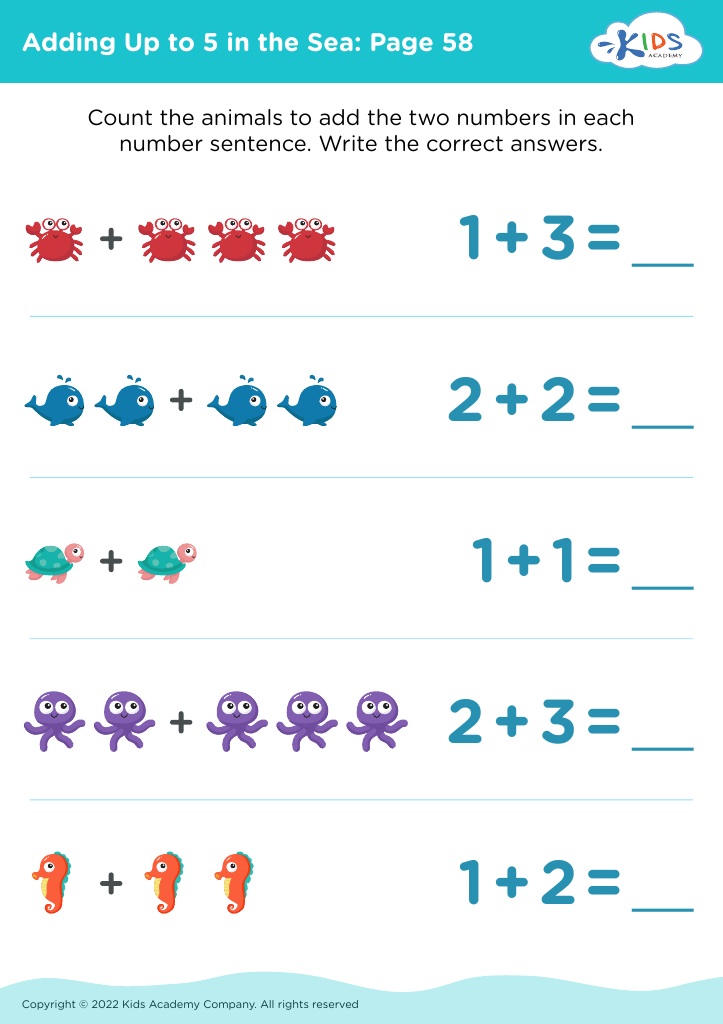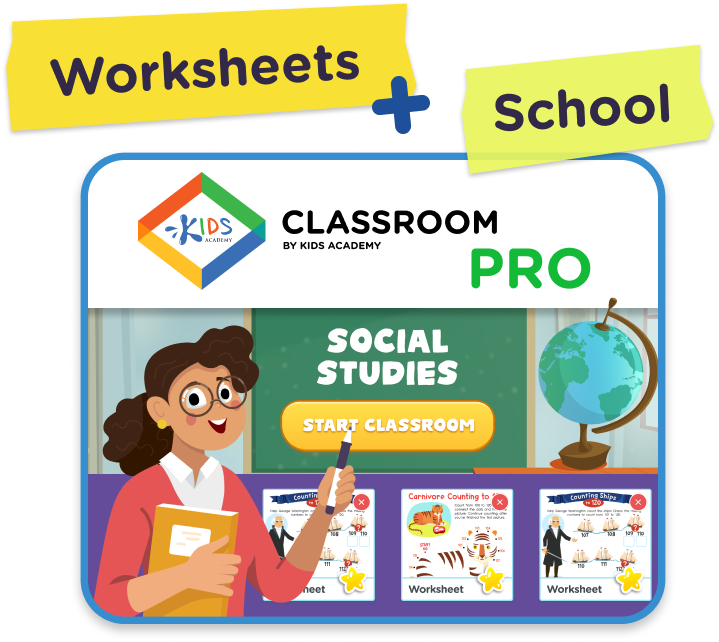Addition & Subtraction Worksheets for Ages 4-7
1492 filtered results
-
From - To
Discover a fun and engaging way to teach addition and subtraction to children aged 4-7 with our specially designed worksheets! Ideal for early learners, these activities foster foundational math skills, promote critical thinking, and encourage a love for numbers. Each worksheet is tailored to the developmental needs of young learners, featuring colorful illustrations and interactive exercises that make learning enjoyable. From simple one-digit problems to beginner concepts, these worksheets support parents and teachers in creating a nurturing learning environment. Download your free addition and subtraction worksheets today and watch your child build confidence in their math abilities while having fun!
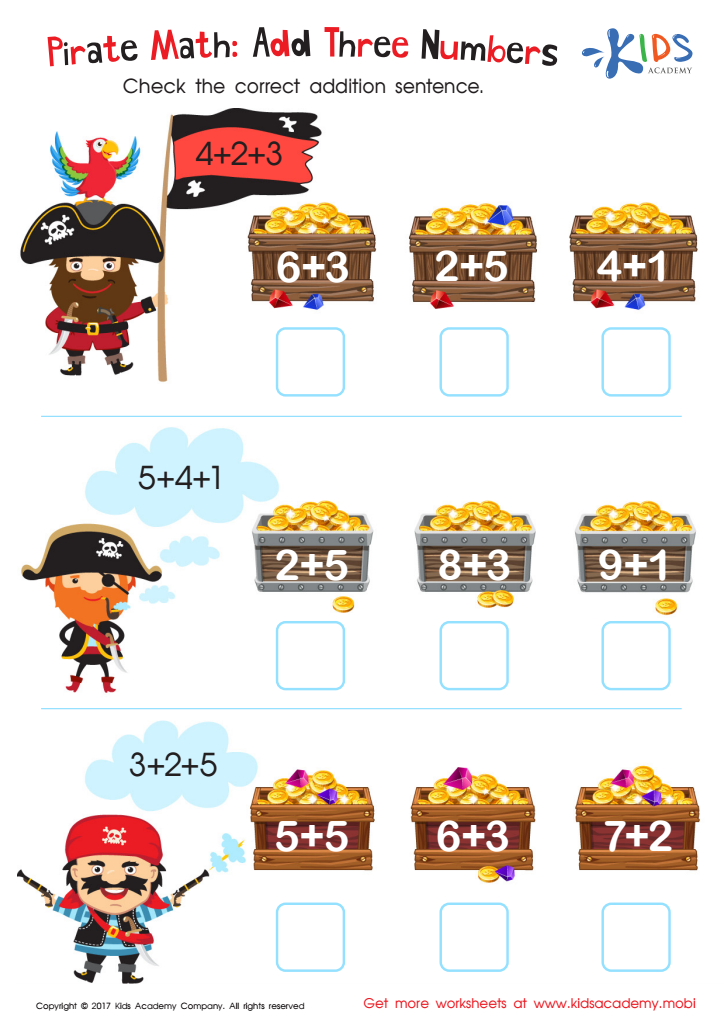

Pirate Math Printable
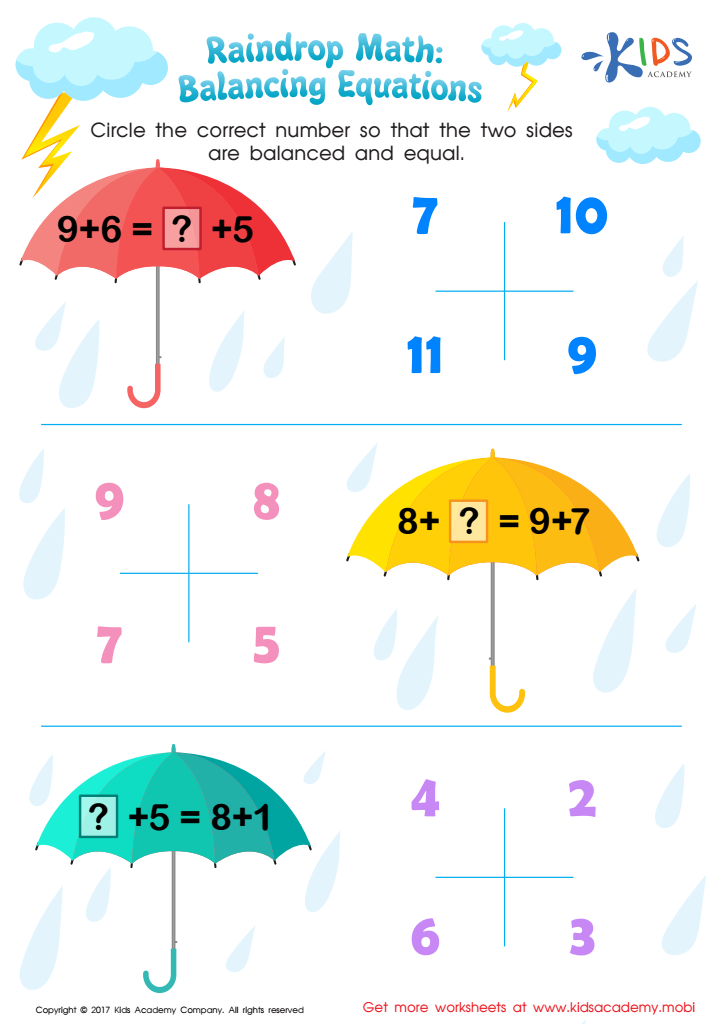

Raindrop Math Printable
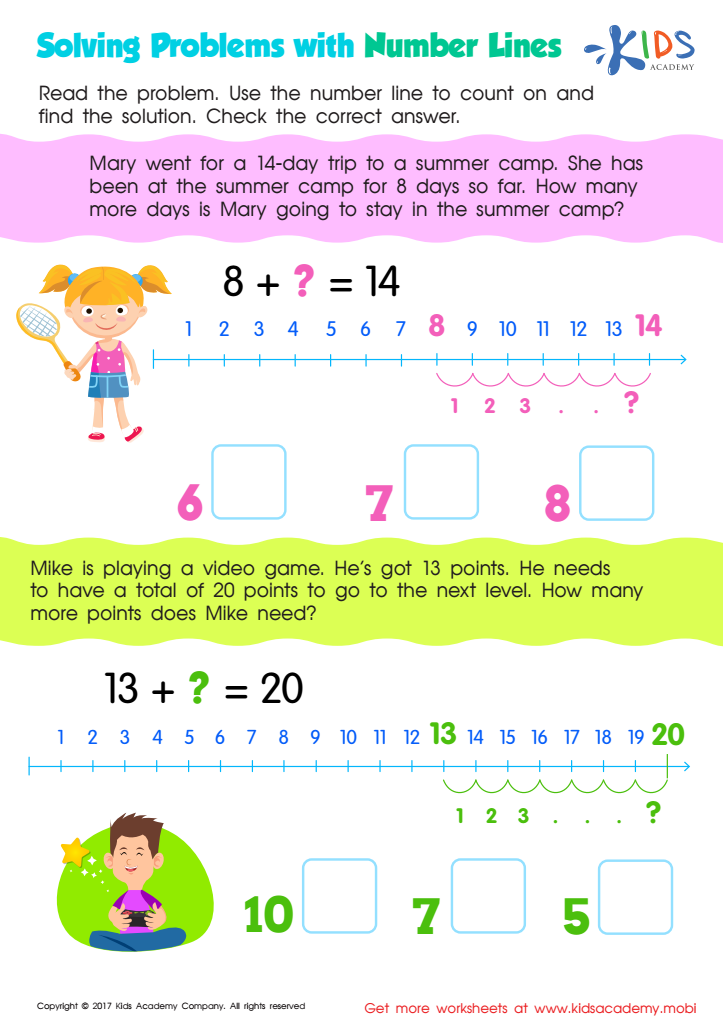

Solving Problems: Number Lines Worksheet


Rocket Math Worksheet


Recycle for 15 Worksheet


Count Winter Things Worksheet
Addition and subtraction are fundamental skills critical for a child’s cognitive and academic development, particularly for ages 4-7. During this key developmental stage, children begin to formulate a foundational understanding of numbers, which shapes their future learning in mathematics and other subjects.
First and foremost, these skills promote logical thinking and problem-solving abilities. By mastering addition and subtraction, children learn how to analyze situations, make decisions, and strategize—skills that are applicable across all areas of life. Additionally, understanding these concepts enhances language development. Children learn to communicate quantities, comparison, and sequences, laying the groundwork for effective expression and comprehension.
Moreover, early proficiency in addition and subtraction fosters confidence and a positive attitude towards math, reducing anxiety associated with it later in life. It is crucial for parents and teachers to create a supportive learning environment where children can practice these skills in fun and engaging ways. Games, interactive activities, and real-life applications will help reinforce concepts while keeping learning enjoyable.
Ultimately, nurturing a strong understanding of addition and subtraction at this age ensures children are not only prepared for more complex math concepts in the future but also equipped to tackle daily challenges in a numerically-driven world.
 Assign to My Students
Assign to My Students

